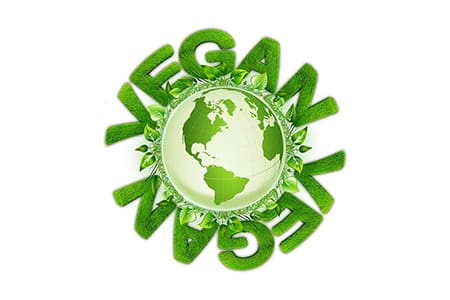Ko te Hapori Movement Vegan e tohu ana i te kupenga kaha me te tipu haere tonu o nga tangata takitahi me nga roopu e whakakotahi ana i runga i te whakapumautanga tahi ki te whakamutu i nga mahi kararehe me te ahu whakamua i te ao matatika, toiwhi, me te tika. I tua atu i nga hiahia kai, ko tenei kaupapa i ahu mai i te rapunga whakaaro morare, te tika o te hapori, me te kawenga kaiao—te hono i nga tangata puta noa i nga rohe na roto i te tirohanga noa o te aroha ki te mahi.
I tona uho, ka ora te kaupapa vegan i runga i te mahi tahi me te whakauru. Ka whakahuihui i nga tangata o nga ahuatanga kanorau — puta noa i te iwi, te ira tangata, te karaehe, me te iwi—e mohio ana ki te honohono o te tukino, ahakoa ka pa ki te tangata, ki te kararehe, ki te aorangi ranei. Mai i nga mahi a te iwi taketake me nga kaupapa awhina tahi ki nga korero matauranga me nga mahi mamati, ka hangaia e te hapori he waahi mo te whanuitanga o nga reo me nga huarahi, me te pupuri i te kaupapa kotahi: he ao aroha me te pumau.
Ko te tino kaha, ko te hapori nekehanga vegan te whakauru i te hononga me te whakauru, me te mohio ko te pakanga mo te whakaoranga kararehe kaore e taea te wehe mai i nga pakanga whanui ki te tukino nahanaha-te kaikiri, te patriarchy, te kaha, me te kino o te taiao. Ehara tenei wahanga i te whakanui noa i nga wikitoria o te kaupapa engari he tirotiro ano i ona wero me ona wawata o roto, me te akiaki i te whakaaro huritao, te korerorero, me te mahi auaha. Ahakoa i runga ipurangi, i nga waahi-a-ao ranei, ko te hapori nekehanga vegan he waahi no konei—ka whai mana te mahi, ka noho te aroha hei mana roopu mo te whakarereke.
Ko te Veganism, i hono ai ki te kai matatika me nga kararehe kararehe, e tino mohiotia ana hei whakawakanga hapori, e akiaki ana i te whawhai mo te oranga kararehe me nga pakanga whanui mo te koretake. Na roto i te whakatikatika i nga take pūnaha penei i te kaikiri, te whakaakoranga, te ngoikore o te taiao, he tino pakiaka i roto i te punaha kai-a-ao te huarahi ki te whakawero i nga mahi tukino i nga wa e wero ana i nga whakamatautau maha. Ko tenei nekehanga e whakanui ana i te hiranga o te whai kiko me te whakauru ki roto i tona ake hapori, me te whakarite ko te noho-a-tipu tipu ka pai mo nga roopu katoa, tae atu ki nga roopu Marginalized. I roto i tenei tuhinga, ka tirohia e matou te ahunga o te vegansis ki te whakawakanga a te hunga takahi i whakaitihia e te ahuwhenua kararehe i te poipoi i te pumau me te tika. Mai i te whakakaha i nga reo rereke hei aukati i nga aukati i roto i nga waahanga kua whakauruhia, ka tirotirohia e te quegant te rereketanga o te taangata me nga kararehe kore-tangata


















































